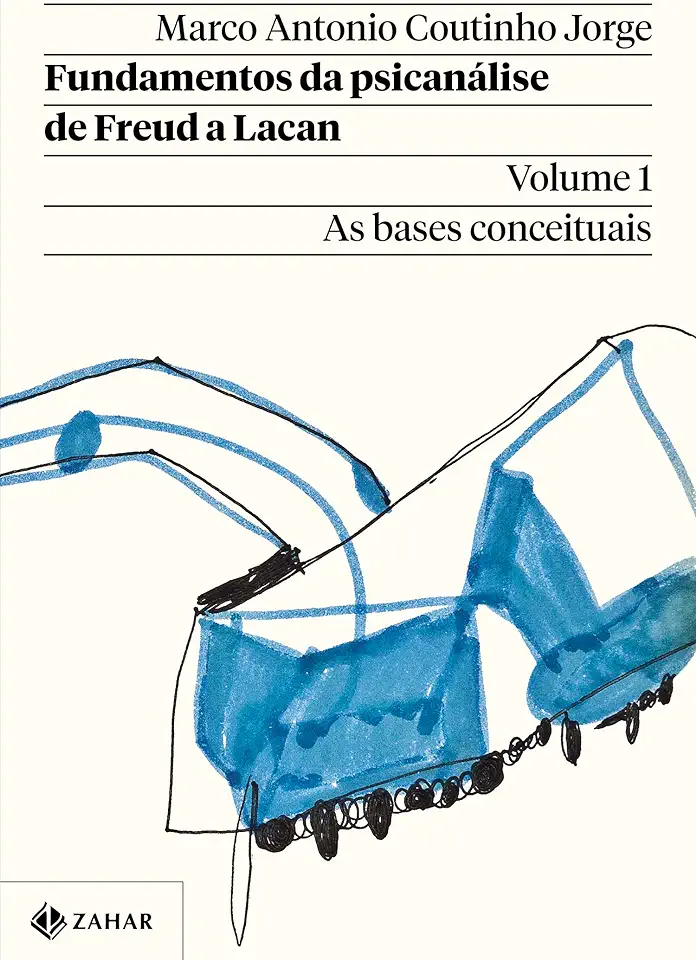
Fundamentals of Psychoanalysis from Freud to Lacan - Marco Antonio Coutinho Jorge
Fundamentals of Psychoanalysis from Freud to Lacan: A Comprehensive Guide to the Unconscious Mind
Introduction: Delving into the Depths of the Human Psyche
In the realm of human understanding, few concepts have captivated and intrigued as much as the unconscious mind. This enigmatic realm, first explored by Sigmund Freud, has since become a cornerstone of psychoanalysis, offering profound insights into the intricate workings of our thoughts, emotions, and behaviors.
In his seminal work, "Fundamentals of Psychoanalysis from Freud to Lacan," Marco Antonio Coutinho Jorge embarks on an intellectual journey, tracing the evolution of psychoanalysis from its Freudian roots to the groundbreaking contributions of Jacques Lacan. With meticulous precision and engaging prose, Jorge unravels the complexities of the unconscious mind, shedding light on its profound impact on our lives.
Chapter 1: Freud's Revolutionary Insights: Unlocking the Secrets of the Unconscious
Sigmund Freud, the father of psychoanalysis, revolutionized our understanding of the human psyche by introducing the concept of the unconscious mind. Jorge meticulously dissects Freud's groundbreaking theories, including the tripartite structure of the mind (id, ego, and superego), the dynamics of repression, and the role of dreams in accessing the unconscious.
Chapter 2: Beyond Freud: Expanding the Psychoanalytic Horizon
While Freud laid the foundation for psychoanalysis, subsequent thinkers expanded and challenged his ideas, enriching the field with new perspectives. Jorge explores the contributions of prominent post-Freudian psychoanalysts, such as Melanie Klein, Wilfred Bion, and Donald Winnicott, highlighting their unique insights into infant development, object relations, and the therapeutic process.
Chapter 3: Lacan's Linguistic Turn: Reimagining the Unconscious through Language
Jacques Lacan, a French psychoanalyst and philosopher, brought a revolutionary linguistic dimension to psychoanalysis. Jorge delves into Lacan's complex theories, including the mirror stage, the symbolic order, and the concept of the "Real." Lacan's emphasis on language as the medium of the unconscious offers a fresh perspective on the human psyche and its relationship with the external world.
Chapter 4: Clinical Applications: Psychoanalysis in Practice
The practical application of psychoanalysis has had a profound impact on the field of mental health. Jorge explores how psychoanalytic techniques, such as free association, dream analysis, and transference, are used to uncover unconscious conflicts and facilitate personal growth and healing. Case studies and clinical examples illustrate the transformative power of psychoanalysis in addressing various psychological issues.
Chapter 5: Controversies and Criticisms: Scrutinizing Psychoanalysis
Psychoanalysis has not been without its detractors. Jorge acknowledges the controversies and criticisms that have surrounded the field, including concerns about its scientific validity, the length of treatment, and the potential for therapist bias. He engages with these critiques, offering balanced and thoughtful responses that encourage readers to critically evaluate the strengths and limitations of psychoanalysis.
Conclusion: Embracing the Unconscious: A Journey of Self-Discovery
"Fundamentals of Psychoanalysis from Freud to Lacan" concludes with a compelling argument for the enduring relevance and significance of psychoanalysis in our modern world. Jorge emphasizes the importance of understanding the unconscious mind in navigating the complexities of human relationships, personal growth, and emotional well-being.
Why You Should Read This Book:
Comprehensive Coverage: This book provides a comprehensive overview of psychoanalysis, from its Freudian origins to the groundbreaking contributions of Jacques Lacan.
Engaging Writing Style: Marco Antonio Coutinho Jorge's engaging writing style makes complex psychoanalytic concepts accessible and captivating, even for readers new to the field.
Clinical Insights: The book includes insightful case studies and clinical examples that illustrate the practical application of psychoanalysis in addressing various psychological issues.
Balanced Perspective: Jorge presents a balanced and critical perspective on psychoanalysis, acknowledging its controversies and limitations while emphasizing its enduring relevance and significance.
Intellectual Journey: Reading this book is an intellectual journey that invites readers to explore the depths of the unconscious mind and gain a deeper understanding of themselves and the human condition.
Call-to-Action:
If you are intrigued by the mysteries of the unconscious mind and seek a deeper understanding of human behavior, "Fundamentals of Psychoanalysis from Freud to Lacan" is an essential read. Embark on this intellectual adventure and discover the transformative power of psychoanalysis.